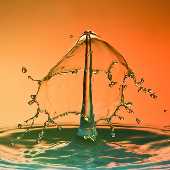
06-Aug-2024 , Updated on 8/6/2024 3:15:06 AM
Why stop eating on plastic plates? 10 reasons
Considered supportive and noticeable by most, plastic plates are a staple in many homes and events. In any case, there are serious weaknesses in their utilization that influence our prosperity, environment, and general prosperity. Coming up next are ten substantial inspirations for reevaluating the utilization of plastic plates and picking more practical other options.
1. Well-being perils from synthetic compounds
Plastic plates are frequently made of materials that can drain destructive synthetics into food, particularly when presented to warm. Synthetic compounds, for example, bisphenol A (BPA) and phthalates, are regularly tracked down in plastics and have been connected to medical problems, including hormonal issues, ripeness issues, and an expanded gamble of specific tumors.
2. Ecological harm
Plastic plates totally add to normal contamination. Once separated, it frequently ends up in landfills, where it can require a long time to debase. During this drawn out debasement process, items safeguarded by plastic plates are released into sewage and groundwater, causing the loss of regular assets. What's more, a lot of plastic waste tracks down its direction into the sea, representing a serious danger to marine life.
3. Abiodegradability
Not at all like biodegradable items; plastic plates don't degrade normally in the climate. They persevere for a really long time and gather in enormous amounts, prompting persistent weed issues. This non-biodegradable plastic implies that each plastic plate made still exists in some structure, adding to the steadily developing issue of plastic contamination.
4. Microplastic tainting
As
plastic plates separate into more modest pieces, plastic particles infiltrate environments and enter the pecking order. Marine creatures can ingest these little bits of plastic and, in the long run, find their direction in the fish we eat. Microplastics have been found in various food varieties including fish, shellfish, and, surprisingly, table salt, raising serious worries about their effect on human wellbeing.
5. Loss of untamed life
Wild creatures frequently botch plastic plates and other plastic flotsam and jetsam for food, and ingestion can cause shortcoming, clogging, and even passing.
Birds, turtles, and marine vertebrates are especially helpless because plastic will annihilate them.
6. Energy utilization in assembling
The development of plastic plates is profoundly demanding of energy and unrefined substances, including oil and petroleum gas. This cycle adds to the depletion of inexhaustible assets and the arrival of ozone harming substances, intensifying environmental change. Picking biodegradable options can decrease the natural impression related to plastic creation.
7. Monetary expenses
Albeit plastic plates may at first appear to be economical, the drawn out costs related to the climate can be huge. State run administrations and regions burn through billions of dollars every year on squandering the executives and plastic waste-related cleanup endeavors. By decreasing our dependence on plastic plates, we can help with lessening these monetary weights and divert assets to a practical framework.
8. Aesthetic and Taste Impact
Eating on plastic plates can make normal food varieties more affordable. Plastic frequently causes smells and stains, which can influence food taste and surfaces. On the other hand, utilizing fired dishes, china, or strong metal plates can build the level of the dishes and make it a really engaging feasting experience.
9. Promotion of Sustainable Practices
It empowers natural mindfulness and makes it usable by advancing from plastic plates to reasonable alternative options. By seeking after choices deliberately, we can urge others to do likewise and advance a culture of sensibility. Schools, working environments, and local area ranch programs on eco-accommodating practices can set genuine models and spread social change all the more generally.
10. Supporting the Roundabout Economy
The utilization of reusable and biodegradable plates upholds the possibility of a roundabout economy, where items are intended to be reused, fixed and reused, diminished squander, and preserved, so by picking plastic plates, we add to a framework that focuses on ecological maintainability and long term natural wellbeing.
Choices for Plastic Plates
Because of the numerous downsides of plastic plates, taking into account maintainable and reasonable alternatives is significant. Here are a few choices:
Reusable plates: Put resources into plates produced using strong materials like clay, glass, or hardened steel. These can be washed and reused many times, diminishing waste and the climate.
Biodegradable plates: Plates produced using regular materials, for example, palm leaves, bamboo, and sugar sticks, are biodegradable and compostable, giving an all the more harmless choice to the ecosystem to table top removal of materials.
Paper plates: While not quite as solid as other options, paper plates can be a superior option in contrast to plastic, particularly in the event that they are produced using reused materials and are biodegradable.
Wooden Plates: These plates separate into natural matter under compostable circumstances, giving them a decent decision to seek after in times and occasions where dispensable flatware is required.
Conclusion
The rising utilization of plastic plates presents tremendous difficulties to our prosperity, environment, and economy. By understanding the dangers and settling on informed choices, we can decrease our openness to plastic and move towards a more manageable lifestyle. Embracing options, for instance reusable, biodegradable, and compostable plates, can assist with decreasing plastic contamination and empower a superior, more manageable future for everybody by saying no to the trustworthiness of the plastic plates we have our individual, our planet, and ourselves in. Furthermore, it's the ideal opportunity to reconsider.

Student
Content writing is the process of writing, editing, and publishing content in a digital format. That content can include blog posts, video or podcast scripts, ebooks or whitepapers, press releases, product category descriptions, landing page or social media copy and more.
Join Our Newsletter
Subscribe to our newsletter to receive emails about new views posts, releases and updates.
Copyright 2010 - 2026 MindStick Software Pvt. Ltd. All Rights Reserved Privacy Policy | Terms & Conditions | Cookie Policy